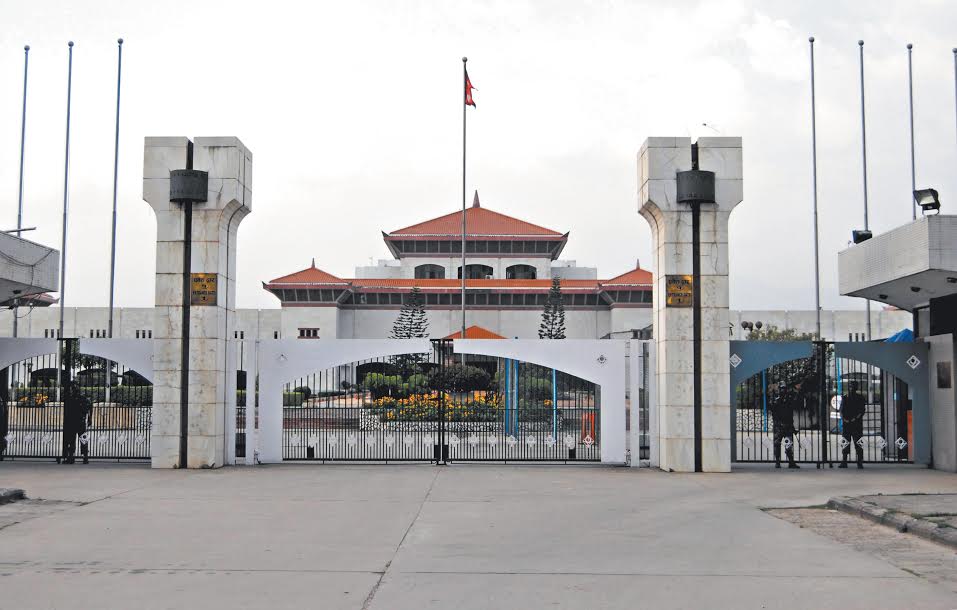Bill on interrelationship among three tiers of govt tabled in HoR
The new bill was formulated on the basis of principles of cooperation, coexistence and coordination
Kathmandu, February 27
Minister of Law, Justice and Parliamentary Affairs Shiva Maya Tumbahangphe tabled the Bill on Interrelationship among Federation, Provinces and Local Levels in the House of Representative for clause-wise discussion today.
She told the lower house that the bill was tabled after its passage from the National Assembly.
Minister Tumbahangphe said the bill was formulated in accordance with Part 20 of the constitution to maintain relation among three tiers of the government based on the principles of cooperation, coexistence and coordination.
As per the constitution, the Government of Nepal may give necessary directions to any provincial Council of Ministers on matters of national importance and on matters to be coordinated between the provinces and it shall be the duty of the concerned provincial Council of Ministers to abide by such directions.
“If any act that may seriously undermine the sovereignty, territorial integrity, nationality or independence of Nepal is carried out by any province, the president may, as required, warn such provincial Council of Ministers, suspend or dissolve the Council of Ministers and provincial assembly for a period not exceeding six months,” reads Article 232 of the constitution.
The federal government may directly or through the provincial government, provide necessary assistance and give necessary directives to any village executive or municipal executive across the country.
It shall be the duty of the village executive or municipal executive to abide by such directives.
According to the bill, basis of interrelationships among the three tiers of government included independence, sovereignty, territorial integrity, nationality, national interest, national pride and unity; coordination and mutual cooperation; strengthening multiparty competitive federal democratic republic system; respect to human rights, fundamental rights and rule of law; plurality, equality and social justice; entrepreneurship and development of disciplinary social and cultural norms; optimum use of natural, financial and human resources; and justifiable distribution of benefits.
The bill also accords high priority to social and cultural solidarity; respect to multilingual, multicultural and geographical diversity; sustainable peace, good governments; adherence to directive principles of state as envisioned by the constitution; equal treatment to each Nepali citizen in service delivery; mutual cooperation in implementation of policies and laws and information sharing on the matters of common concern and interest.
The bill has provision of a 14-member National Coordination Council headed by the prime minister to maintain interrelationships among federal, province and local level of the government.
The council shall be responsible to formulate law and policies on the matters of concurrent power of all three tries of the government.






